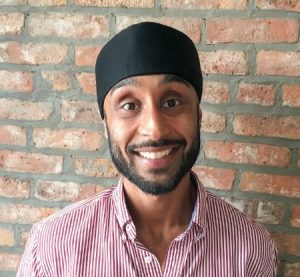By: Jeff Deal, Program Chair, Predictive Analytics World Healthcare
In anticipation of his upcoming conference presentation at Predictive Analytics World for Healthcare Las Vegas, June 3-7, 2-18, we asked Arjun Panesar, Founder and CEO at Diabetes Digital Media, a few questions about incorporating predictive  analytics into healthcare. Catch a glimpse of his presentation, From Big Data to Big Impact: Redefining Type 2 Diabetes, and see what’s in store at the PAW Healthcare conference in Las Vegas.
analytics into healthcare. Catch a glimpse of his presentation, From Big Data to Big Impact: Redefining Type 2 Diabetes, and see what’s in store at the PAW Healthcare conference in Las Vegas.
Q: In your work with predictive analytics, what area of healthcare are you focused on?
A: I founded Diabetes.co.uk, a digital empowerment platform that provides AI-led digital health interventions for people with diabetes, obesity and chronic disease. These are behavioural change programmes delivered through desktop and mobile apps that empower patients and are redefining chronic disease.
Q: What outcomes do your models predict?
A: We collect over 1,000 variables a patient in the first 3 months of using the Low Carb Program. This includes data from wearables and connected health devices (blood glucose meters, weighing scales, oximeters, etc.). There are some really interesting models in use – including a model that detects the user’s risk of pancreatic cancer, with a non-threatening nudge to see your healthcare professional if the prediction is of concern. We also have some more exciting algorithms, for instance we have a model that can detect your weight from a selfie.
Q: How does predictive analytics deliver value at your organization? What is one specific way in which it actively drives decisions or impacts operations?
A: Predictive analytics drives our value as it gives us a competitive edge that no other digital health organisation has. With over 36 million visitors to the Diabetes.co.uk platform and hundreds of thousands of members, we collect rapid real-time data which we use to empower patients to take control of their own health.
Q: Can you describe a successful result, such as the predictive lift of your model or the ROI of an analytics initiative? OR: How do you measure the success of your predictive analytics models?
A: The way we measure our success is through impact. As the result of using an AI-based behavioural change pathway, members with type 2 diabetes who complete the Low Carb Program lose over 7kg, 40% eliminate at least one medication and 28% put type 2 diabetes into remission at 1-year. The cost saving for healthcare is huge – there’s a $950 cost saving in medication reduction alone. What’s more, there is a 70% engagement at one-year, all led through a predictive analytics powered engagement pathway.
Q: What surprising discovery have you unearthed in your data?
A: Age and employment status are key criteria for determining depression in people with diabetes. What’s more, we can see some very interesting relationships between medication usage and mood.
Q: What areas of healthcare do you think have seen the greatest advances or ROI from the use of predictive analytics?
A: Even basic areas of healthcare are still to utilize predictive analytics. Simple resource management tools, such as those that predict peak times of traffic to clinics and hospitals could certainly be used to better effect to manage loads. The datafication of health is perhaps the most exciting area of healthcare from a predictive analytics perspective. An explosion in IoT devices, fitness trackers and health wearables means that we are able to create substantial data profiles on patients. The areas of predictive diagnosis and innovative ways of accessing healthcare have seen exponential growth. As algorithms, data and understanding matures, we will truly be able to realize medicine’s vision of precision based medicine.
Q: Sneak preview: Please tell us a take-away that you will provide during your talk at Predictive Analytics World.
A: Type 2 diabetes was once considered to be a chronic and progressive disease. The AI-led Low Carb Program, alongside a robust clinical evidence base is demonstrating that type 2 diabetes (in the vast majority of cases) does not have to be terminal and can in fact be put into remission. The data is demonstrating you can empower people to make positive changes to their health beliefs and behavior through a digital portal, and make it sustainable.
—————————–
Don’t miss Arjun’s presentation, From Big Data to Big Impact: Redefining Type 2 Diabetes, at PAW Healthcare on Wednesday, June 6, 2018 from 3:30 to 4:10 PM. Click here to register for attendance.
By: Jeff Deal, Conference Chair, Predictive Analytics World Healthcare
